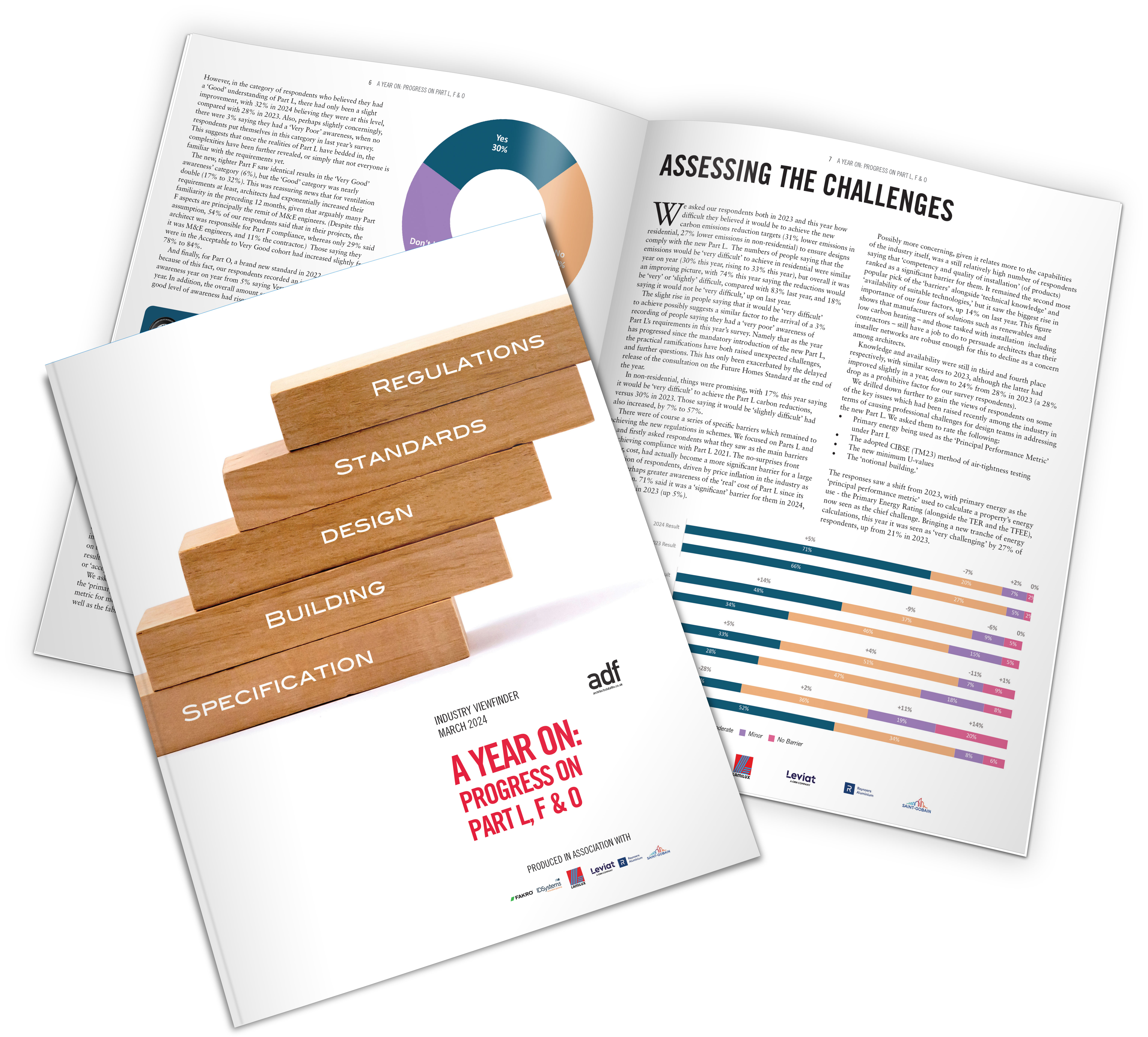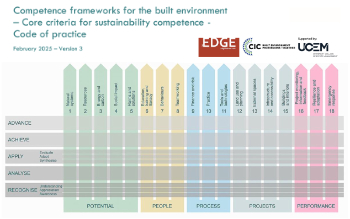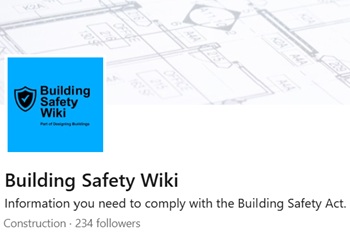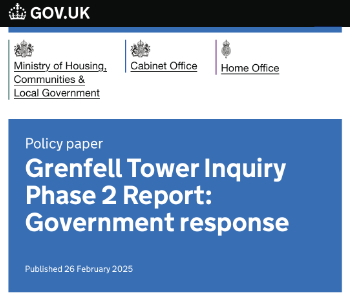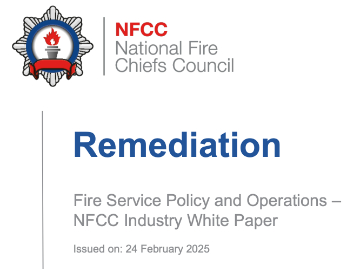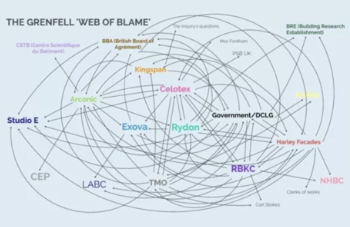The progress from Parts L, F and O. A whitepaper, one year on.
In June 2023, the new Building Regulations Parts L and F (covering energy efficiency and ventilation respectively), as well as a new Regulation mitigating consequent overheating in residential projects (Part O), were introduced as mandatory requirements. The industry was given a year’s run up to this deadline, as although the Regulations were introduced in June 2022, schemes which had submitted planning by that stage didn’t need to adhere to the new, more stringent requirements for built fabric and efficiency generally.
There are a host of challenges for designers and contractors in order to bring mainstream house designs up to this kind of level of performance, not least the ways to adopt energy efficiency designs which do not drastically change their appearance for customers. One potential outcome, for example, could be smaller or fewer windows in order to increase energy efficiency while reducing overheating.
As the industry confronted the June 2023 deadline for the tighter standards becoming mandatory (alongside the new Part O), we surveyed architects to test their perceptions, largely focusing on new build issues. We discovered a wide range of responses from these practitioners, the majority of whom were involved in new housing developments. Some were potentially expected, however others were less so.
We wanted to find out their understanding of, as well as opinions on, the new changes, their views on how relevant they are to architects, and the design approaches they are already taking to meet the new Parts L, F and O. We not only looked at their attitudes towards the challenges and bene ts of solutions for new homes, but also for the non-domestic sector.
Click here to download the full white paper.
[edit] Related articles on Designing Buildings
- Approved documents.
- Approved document o.
- Approved inspector.
- Building control bodies.
- Building Regulations exemptions.
- Building Regulations.
- Changes to approved document L and F and new approved document O.
- Competent person schemes.
- Overheating.
- Overheating guidance for buildings.
- Statutory approvals.
- Statutory authorities.
- The Building Act.
Featured articles and news
International Women's Day 8 March, 2025
Accelerating Action for For ALL Women and Girls: Rights. Equality. Empowerment.
Lack of construction careers advice threatens housing targets
CIOB warning on Government plans to accelerate housebuilding and development.
Shelter from the storm in Ukraine
Ukraine’s architects paving the path to recovery.
BSRIA market intelligence division key appointment
Lisa Wiltshire to lead rapidly growing Market Intelligence division.
A blueprint for construction’s sustainability efforts
Practical steps to achieve the United Nations Sustainable Development Goals.
Timber in Construction Roadmap
Ambitious plans from the Government to increase the use of timber in construction.
ECA digital series unveils road to net-zero.
Retrofit and Decarbonisation framework N9 launched
Aligned with LHCPG social value strategy and the Gold Standard.
Competence framework for sustainability
In the built environment launched by CIC and the Edge.
Institute of Roofing members welcomed into CIOB
IoR members transition to CIOB membership based on individual expertise and qualifications.
Join the Building Safety Linkedin group to stay up-to-date and join the debate.
Government responds to the final Grenfell Inquiry report
A with a brief summary with reactions to their response.
A brief description and background to this new February law.
Everything you need to know about building conservation and the historic environment.
NFCC publishes Industry White Paper on Remediation
Calling for a coordinated approach and cross-departmental Construction Skills Strategy to manage workforce development.
'who blames whom and for what, and there are three reasons for doing that: legal , cultural and moral"








